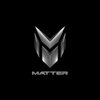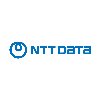Senior Manager Finance
30+ Senior Manager Finance Interview Questions and Answers

Asked in TEJRAJ PROMOTERS & BUILDERS

Q. Can you describe your experience with analyzing raw data using various financial ratios or Key Performance Indicators (KPIs) during your interview?
I have extensive experience analyzing raw data using financial ratios and KPIs to drive strategic decision-making.
Utilized liquidity ratios like current and quick ratios to assess short-term financial health.
Analyzed profitability ratios such as gross margin and net profit margin to evaluate operational efficiency.
Employed leverage ratios, including debt-to-equity, to understand the company's capital structure and risk.
Implemented KPIs like return on equity (ROE) and return o...read more
Asked in Global Growth Arrevio

Q. What is involved in the preparation of financial statements, and how does the accrual basis of accounting work?
Financial statements preparation involves recording, classifying, and summarizing financial data using the accrual basis of accounting.
1. Identify transactions: Gather all financial transactions that occurred during the reporting period.
2. Record transactions: Use journals to record transactions as they occur, ensuring accuracy.
3. Adjust entries: Make necessary adjustments for accrued revenues and expenses that have not yet been recorded.
4. Prepare trial balance: Summarize al...read more

Asked in KK Wind Solutions

Q. What is the description of the case and what solutions were proposed?
The case involved financial inefficiencies and proposed solutions to optimize budgeting and forecasting processes.
Identified key areas of overspending, such as operational costs and resource allocation.
Proposed implementing a zero-based budgeting approach to justify all expenses.
Recommended adopting advanced forecasting tools to improve accuracy in financial projections.
Suggested regular financial reviews and audits to monitor performance against budgets.

Asked in TEJRAJ PROMOTERS & BUILDERS

Q. What is your perspective on the real estate market in Pune over the next five years?
Pune's real estate market is poised for growth, driven by infrastructure, demand, and economic development over the next five years.
Pune's infrastructure development, such as the Pune Metro, will enhance connectivity and boost property values.
The IT and manufacturing sectors are expanding, attracting professionals and increasing demand for residential properties.
Affordable housing initiatives by the government are likely to make homeownership more accessible, stimulating mark...read more

Asked in TEJRAJ PROMOTERS & BUILDERS

Q. What tax planning tools can assist in managing taxes from a real estate perspective?
Tax planning tools for real estate help optimize tax liabilities and enhance investment returns.
1031 Exchange: Allows deferral of capital gains taxes by reinvesting proceeds from a property sale into a similar property.
Depreciation: Property owners can deduct depreciation on their taxes, reducing taxable income over time.
Opportunity Zones: Investing in designated Opportunity Zones can provide tax incentives, including deferral and potential exclusion of capital gains.
Real Est...read more

Asked in Heavy Engineering Corporation

Q. What is the status of HEC with respect to profit?
HEC is currently operating at a loss due to various factors affecting its profitability.
HEC is currently facing challenges in terms of profitability due to increased competition in the market.
The company's profit margins have been declining over the past few quarters.
Management is implementing cost-cutting measures to improve profitability.
Investors are concerned about HEC's financial performance and future prospects.
Senior Manager Finance Jobs



Asked in Global Growth Arrevio

Q. What are the key points to consider regarding cash flow?
Key cash flow considerations include timing, sources, uses, forecasting, and management strategies to ensure liquidity.
Timing of cash inflows and outflows is crucial; for example, receiving payments from customers promptly can improve liquidity.
Identify sources of cash flow, such as sales revenue, loans, or investments, to understand where cash is coming from.
Monitor uses of cash flow, including operating expenses, capital expenditures, and debt repayments, to manage outflows...read more

Asked in Heavy Engineering Corporation

Q. How can you reduce the wastage of materials?
To reduce wastage of materials, implement strict inventory management, conduct regular audits, train employees on proper handling, and explore recycling options.
Implement strict inventory management to track usage and prevent over-ordering.
Conduct regular audits to identify areas of waste and implement corrective actions.
Train employees on proper handling and storage of materials to minimize damage and spoilage.
Explore recycling options for materials that cannot be used in th...read more
Share interview questions and help millions of jobseekers 🌟


Q. How familiar are you with statutory compliance?
I am highly proficient in statutory compliance, ensuring all financial regulations are met.
Extensive experience in interpreting and implementing financial regulations
Strong knowledge of tax laws, accounting standards, and reporting requirements
Proven track record of successfully managing audits and ensuring compliance
Regularly updating policies and procedures to stay current with changing regulations
Asked in Fitex Industries

Q. What is the current interest rate for cash credit?
I don't have the available data.
N/A

Asked in Heavy Engineering Corporation

Q. Can you share the means of improvement?
Continuous improvement can be achieved through regular performance evaluations, feedback mechanisms, training programs, and implementing best practices.
Regular performance evaluations to identify areas of improvement
Implementing feedback mechanisms for employees to provide input on processes
Providing training programs to enhance skills and knowledge
Implementing best practices from industry leaders
Encouraging innovation and creativity in problem-solving

Asked in Sonata Finance

Q. Do you know how to make BI Dashboards?
Yes, I have experience in creating BI dashboards using various tools such as Tableau, Power BI, and Excel.
I have experience in data visualization and analysis
I am proficient in using BI tools such as Tableau, Power BI, and Excel
I can create interactive dashboards that provide insights and help in decision-making
I can work with different data sources and integrate them into the dashboard
I can customize the dashboard according to the user's requirements

Asked in Sainik Mining and Allied Services

Q. Current changes in Accounting and taxation
Accounting and taxation are constantly evolving due to changes in regulations and technology.
The implementation of new accounting standards such as ASC 606 and IFRS 16
The impact of technology on accounting processes, such as the use of automation and artificial intelligence
Changes in tax laws, such as the Tax Cuts and Jobs Act in the US
The increasing focus on sustainability reporting and environmental, social, and governance (ESG) factors
The ongoing debate around the taxation...read more

Asked in DNS BANK

Q. Tell me about candle stick pattern
Candlestick pattern is a charting technique used in financial markets to identify potential trend reversals or continuations.
Candlestick patterns consist of a body and wick or shadow
Different patterns indicate different market sentiments
Examples include doji, hammer, shooting star, and engulfing pattern

Asked in Diamond Beverages

Q. Finalization of CTC . Minimum time to Join
The finalization of CTC and minimum time to join depends on various factors such as negotiation, background verification, and notice period.
Finalization of CTC involves negotiation between the employer and employee.
Background verification can take time and delay the joining process.
Notice period of the previous employer can also affect the minimum time to join.
The finalization of CTC and minimum time to join can vary from a few days to a few weeks depending on the above facto...read more

Asked in Genpact

Q. What are Contingent Liabilities?
Contingent liabilities are potential liabilities that may arise in the future based on certain events or conditions.
Contingent liabilities are not recorded on the balance sheet but disclosed in the notes to the financial statements.
They depend on the outcome of future events, such as pending lawsuits, guarantees, or warranties.
If the contingent liability is probable and the amount can be reasonably estimated, it should be recorded in the financial statements.
Examples include ...read more
Asked in Project Engineering Services

Q. what is current CTC and expected CTC
Current CTC is $120,000 and expected CTC is $140,000.
Current CTC is the current annual salary of the candidate.
Expected CTC is the annual salary the candidate is looking for in the new role.
CTC includes salary, bonuses, benefits, and any other compensation.
Candidates may negotiate their expected CTC based on their experience and the responsibilities of the new role.

Asked in Manappuram Finance

Q. Is CARO applicable to NBFCs?
Yes, CARO is applicable to NBFCs.
CARO (Companies Auditor's Report Order) is applicable to all companies including NBFCs.
CARO requires the auditor to report on various aspects of the company's operations and financial statements.
Non-compliance with CARO can lead to penalties and legal consequences for NBFCs.
Examples of CARO requirements include reporting on internal control systems, loans and advances, and related party transactions.
Asked in Fitex Industries

Q. What are the recent changes in GST?
Real changes in GST include new return filing system, increased threshold for registration, and reduced tax rates for various goods and services.
New return filing system introduced with simplified forms and increased frequency of filing
Threshold for registration increased from Rs. 20 lakhs to Rs. 40 lakhs for most businesses
Reduced tax rates for various goods and services such as hotel accommodation, cinema tickets, and electric vehicles
Introduction of e-invoicing for busines...read more

Asked in TCS

Q. Are you willing to relocate?
Mobility from one location to another is essential for a Senior Manager Finance to effectively oversee operations in different areas.
Senior Manager Finance may need to travel between different office locations to oversee financial operations.
Ability to work remotely and manage teams in different locations is important.
Understanding of local regulations and financial practices in different regions is crucial for decision-making.
Utilizing technology for virtual meetings and com...read more

Asked in Genpact

Q. How can working capital be improved?
Improving working capital involves managing inventory, accounts receivable, and accounts payable efficiently.
Optimize inventory levels to reduce carrying costs
Negotiate better payment terms with suppliers to extend accounts payable
Accelerate accounts receivable collection by offering discounts for early payment
Implement efficient cash management practices to minimize idle cash
Monitor working capital ratios regularly to identify areas for improvement

Asked in ACC

Q. Role of Finance in Business Partnering
Finance plays a crucial role in business partnering by providing financial insights, analysis, and support to help drive strategic decision-making.
Finance collaborates with other departments to align financial goals with overall business objectives.
Provides financial analysis and reporting to support decision-making processes.
Assists in budgeting, forecasting, and financial planning to ensure alignment with business strategy.
Helps in evaluating investment opportunities and as...read more

Asked in ACC

Q. Tell me about the EBITDA drivers.
EBITDA driver is a financial metric that indicates the key factors influencing EBITDA performance.
EBITDA driver refers to the specific factors that have a significant impact on a company's EBITDA (Earnings Before Interest, Taxes, Depreciation, and Amortization) performance.
Examples of EBITDA drivers include revenue growth, cost control measures, operational efficiency improvements, and changes in pricing strategies.
Identifying and focusing on EBITDA drivers can help a company...read more

Asked in Atha Group

Q. Can you prepare a financial model?
Yes, I can prepare financial models.
I have experience in building financial models for budgeting, forecasting, and decision-making purposes.
I am proficient in using Excel and other financial modeling software.
I can create models for various scenarios, such as mergers and acquisitions, capital budgeting, and cash flow analysis.
I ensure that my models are accurate, reliable, and easy to understand for stakeholders.
For example, I recently built a financial model for a startup co...read more

Asked in L&T Metro Rail

Q. What are the growth prospects?
Growth prospects refer to the potential for a company to expand and increase its revenue and profitability over time.
Growth prospects are influenced by various factors such as market demand, competition, industry trends, and economic conditions.
Companies with strong growth prospects may have a competitive advantage, innovative products or services, or a solid financial position.
Investors and stakeholders often evaluate growth prospects when making investment decisions or asse...read more

Asked in Rithwik Projects

Q. How should mess expenses be debited?
Mess expenses are debited to the Mess Expenses account in the general ledger.
Debit the Mess Expenses account in the general ledger
Record the amount spent on mess expenses
Ensure proper documentation and approval for all mess expenses
Review and reconcile mess expenses regularly to ensure accuracy

Asked in DNS BANK

Q. Tell me about share market
Share market is a platform where stocks and securities are traded publicly.
Share market is also known as stock market or equity market.
It provides a platform for companies to raise capital by issuing shares to the public.
Investors can buy and sell shares of publicly traded companies through stock exchanges.
The value of shares is determined by supply and demand, and can fluctuate based on various factors such as company performance, economic conditions, and global events.
Examp...read more

Asked in Parle Agro

Q. Expectation from the current JD
The expectation from the current JD is to effectively manage the finance department, ensure accurate financial reporting, and contribute to strategic decision-making.
Ensure accurate financial reporting by overseeing financial statements and budgets
Manage the finance department by leading a team of finance professionals
Contribute to strategic decision-making by providing financial analysis and insights
Collaborate with other departments to align financial goals with overall bus...read more

Asked in Matter Motor Works

Q. How are budgets made?
Budgets are created through a structured process involving planning, forecasting, and collaboration across departments.
1. Define objectives: Establish clear financial goals for the upcoming period, such as revenue targets or cost reductions.
2. Gather historical data: Analyze past financial performance to inform future projections, like last year's sales figures.
3. Involve stakeholders: Collaborate with department heads to understand their needs and constraints, ensuring align...read more
Asked in Runwal Realty Pvt Ltd

Q. How do you manage cash flow?
Managing cashflow involves monitoring inflows and outflows of cash to ensure liquidity and financial stability.
Create a cashflow forecast to predict future cash needs and plan accordingly
Monitor and analyze cash inflows and outflows regularly
Implement strategies to improve cash inflows, such as offering discounts for early payments
Negotiate favorable payment terms with suppliers to manage cash outflows
Maintain a cash reserve for unexpected expenses or downturns in revenue
Interview Experiences of Popular Companies








Reviews
Interviews
Salaries
Users

















